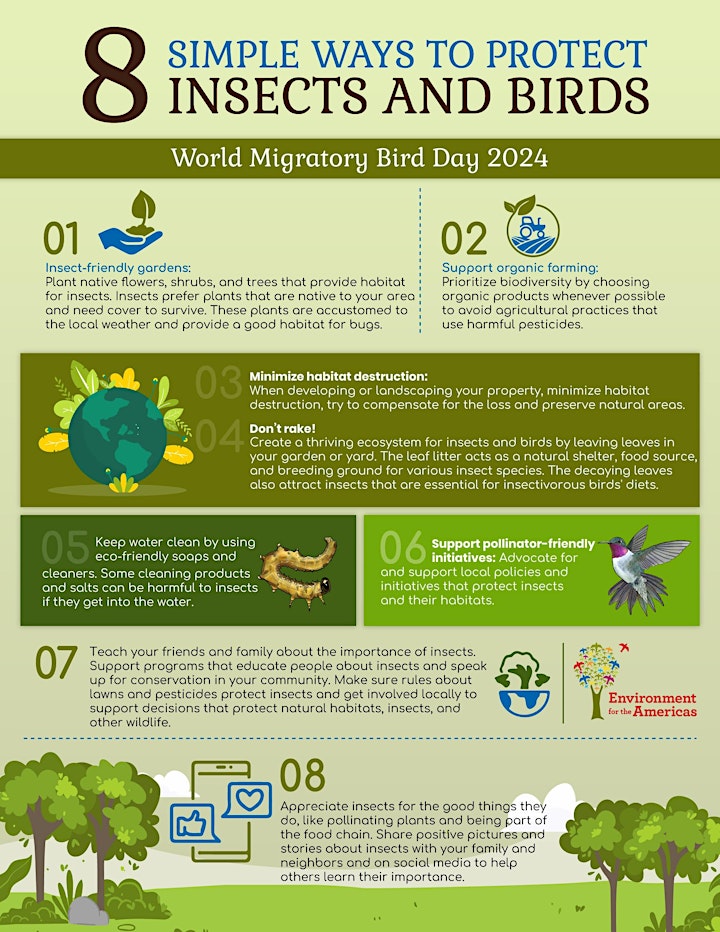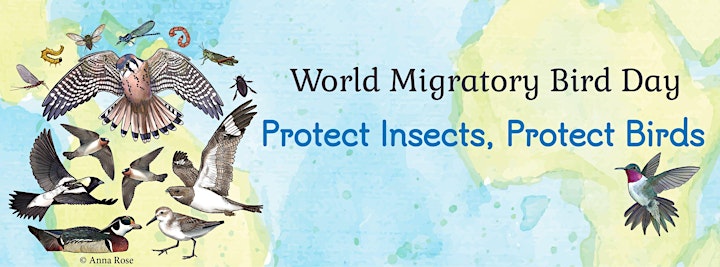World Migratory Bird Day (WMBD) is an annual awareness-raising campaign highlighting the need for the conservation of migratory birds and their habitats. It has a global outreach and is an effective tool to help raise global awareness of the threats faced by migratory birds, their ecological importance, and the need for international cooperation to conserve them. https://www.migratorybirdday.org/
Join us as we welcome back the neo-tropical migrants as they return to their summer territories — from thrushes to warblers, bluebirds to tanagers and beyond. This years WMBD theme is insects and their importance to migratory birds.
Don’t forget to bring your binoculars! We will meet at Barlow Nature Preserve. Groups will head out to different WLT properties and gather back at Barlow to share our counts, stories and coffee and snacks.
- Registration required, spots are limited.
- FREE for members, $10 for not-yet-members.
- Not a member and would like to be? CLICK HERE!
– ——————————————————————————————————————
F rom World Migratory Bird Day 2024
INSECTS
Insects and their importance to migratory birds is the focus of this year’s World Migratory Bird Day, a global campaign that aims to raise awareness of migratory birds and the need for international cooperation to conserve them.
Insects are essential sources of energy for many migratory bird species, not only during the breeding seasons but also during their extensive journeys and greatly affect the timing, duration, and overall success of bird migrations.Along their migration routes, birds actively seek out insects in fields, forests, wetlands, and various habitats during stopovers. The timing of bird migration often coincides with peak insect abundance at stopover locations, supplying nourishment for birds to replenish their energy reserves before continuing their journeys.
The loss and disturbance of insect populations at breeding sites and along avian migration routes threaten bird survival and well-being. Natural spaces like forests and grasslands that have been transformed or endangered by intensive agriculture and urban development and its effects such as light pollution can result in a decline in insect populations. Pesticides and herbicides designed to protect crops harm insects that birds rely on for food. A scarcity of energy- and protein-rich insects can hinder bird migration and breeding, leading to weakened immune systems, reduced reproductive success, and increased mortality rates for both adult birds and their offspring.
Birds play crucial roles in pollination and pest control, and a lack of insects disrupts these ecosystem functions. Overpopulation of certain insects, without natural predators from birds, can also cause outbreaks that damage plant health and agriculture.
The World Migratory Bird Day campaign in 2024 will stress the need for proactive conservation measures. This includes reducing the use of pesticides and fertilizers, and where possible, switching to organic farming. Other measures include maintaining and connecting areas of natural vegetation which provide food and shelter for birds and other species, in agricultural landscapes.
In 2024, World Migratory Bird Day will be celebrated on two days, 11 May and 12 October, aligning with the cyclic nature of bird migration in different hemispheres.
The campaign is a joint effort of the Convention on the Conservation of Migratory Species of Wild Animals (CMS), the African-Eurasian Migratory Waterbird Agreement (AEWA), Environment for the Americas and the EAAFP. The addition of the EAAFP to this Partnership will strengthen engagement and awareness for migratory birds in the East Asian-Australasian Flyway.
Contact us at info@environmentamericas.org with any questions.



